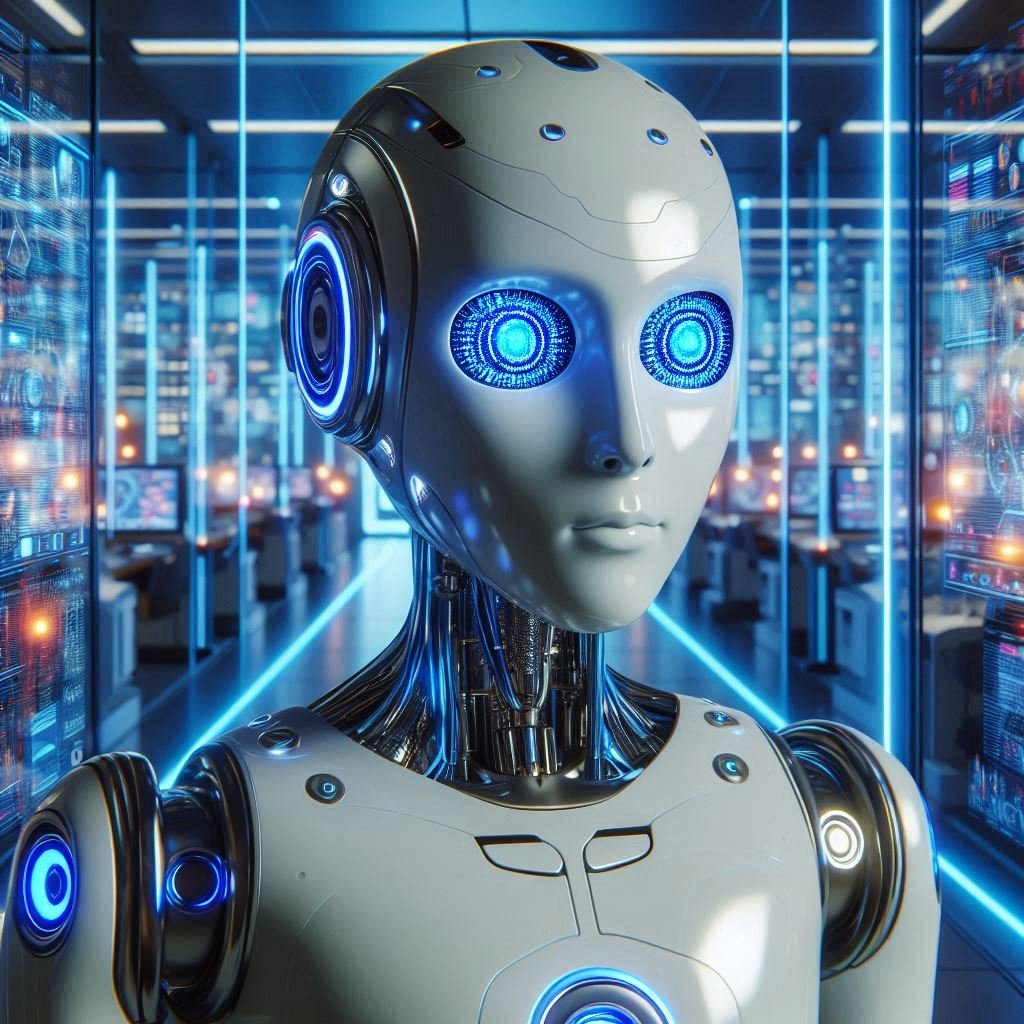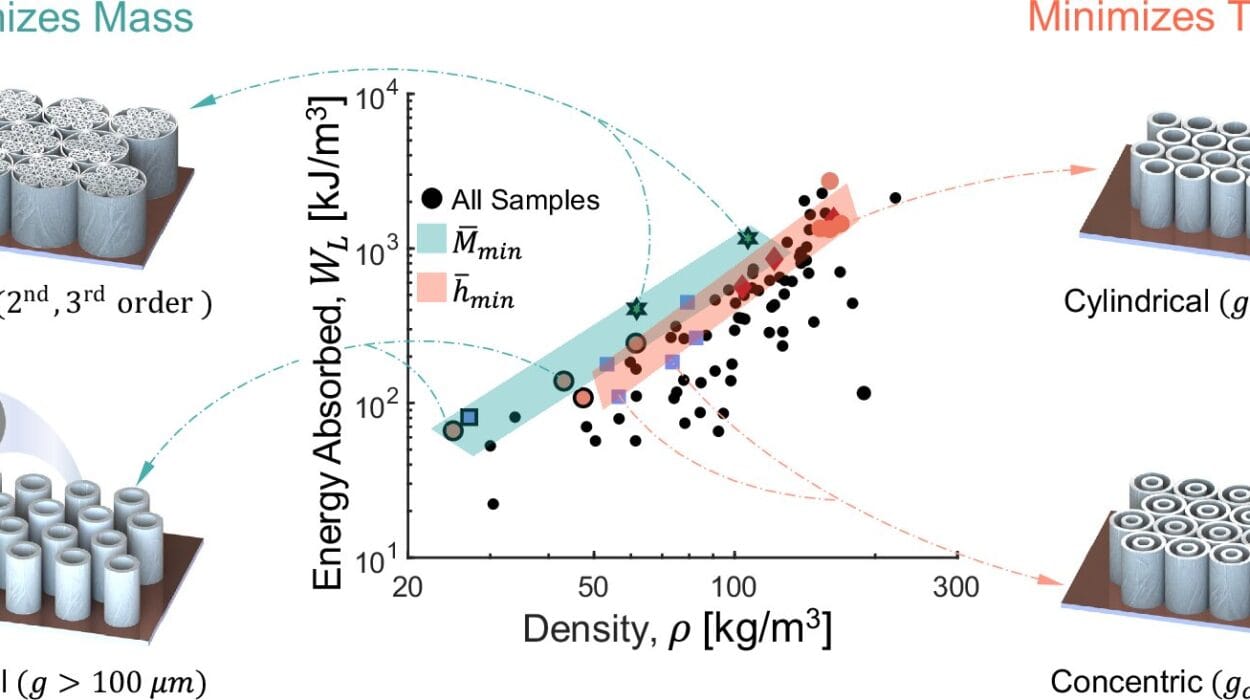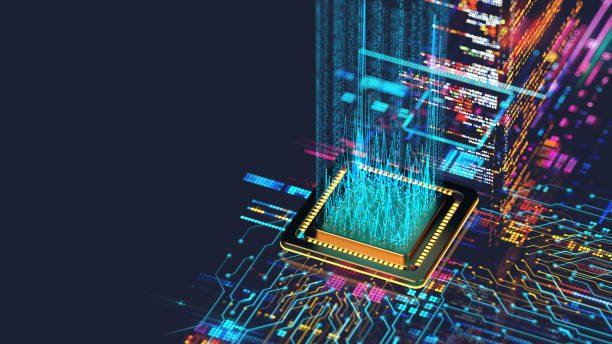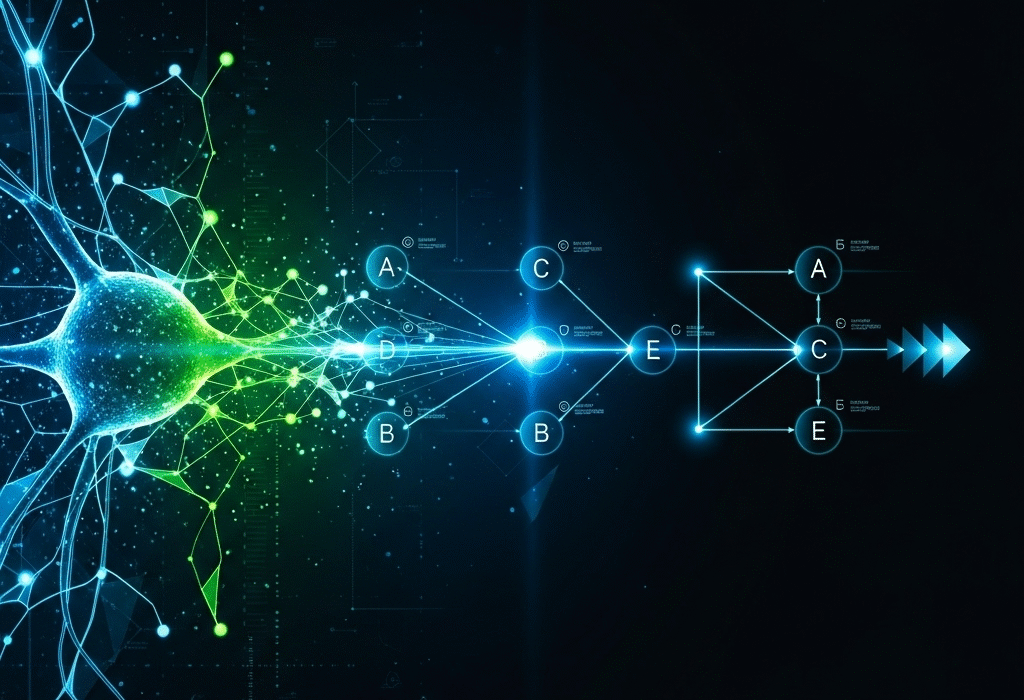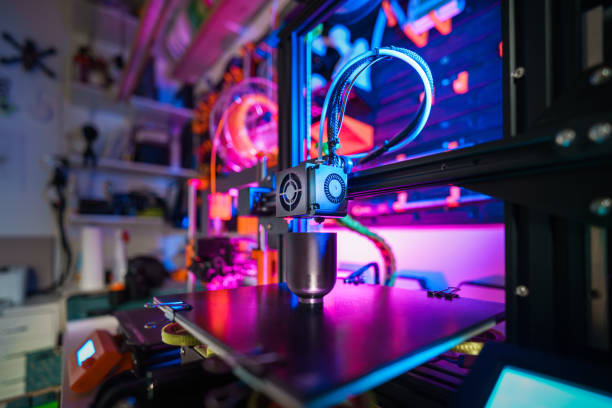As we approach the mid-2020s, the landscape of technology is evolving at an unprecedented pace. Innovations that once seemed like distant dreams are quickly becoming everyday realities. In just a few short years, the world has witnessed the proliferation of artificial intelligence, advances in biotechnology, and the democratization of the digital world. But as we look to 2025, what new technologies will define our lives, shape industries, and alter the course of society?
In this article, we’ll explore 10 key technological trends that are set to revolutionize the world by 2025. From breakthroughs in artificial intelligence and sustainable energy to the continued development of immersive digital experiences, these trends will be at the forefront of the coming technological renaissance.
1. The Rise of Artificial Intelligence and Autonomous Systems
Artificial intelligence (AI) has been a buzzword for years, but by 2025, its integration into daily life will be deeper, more seamless, and more impactful than ever before. We are already seeing AI transforming industries, from healthcare and finance to retail and entertainment. But by 2025, AI’s influence will stretch into areas that were once considered purely human domains.
In the healthcare sector, AI will revolutionize diagnostics and personalized treatment plans. Machine learning algorithms will be able to analyze patient data with remarkable speed and accuracy, enabling earlier detection of diseases like cancer, heart conditions, and neurological disorders. AI will also become a core part of drug discovery, reducing the time it takes to develop new treatments by simulating chemical interactions and predicting the effectiveness of various compounds.
Meanwhile, autonomous systems will be a part of everyday life. Self-driving cars, which have already made significant strides, will be commonplace by 2025. Expect cities to be populated with autonomous vehicles, reducing traffic accidents, streamlining traffic flow, and making transportation more efficient. The implications for industries like logistics, where autonomous trucks will deliver goods with minimal human intervention, are profound.
Additionally, AI will see a significant leap in creative industries. AI-assisted art, music composition, and even literature will become more prevalent, raising questions about authorship, creativity, and the very nature of human artistic expression. In this new world, AI will not only be a tool but a collaborator, working alongside humans to create things we can barely imagine today.
2. Quantum Computing Breakthroughs
By 2025, quantum computing will be inching closer to mainstream adoption. Quantum computing is fundamentally different from classical computing, using qubits (quantum bits) that can exist in multiple states simultaneously, enabling these machines to process vast amounts of data in ways that traditional computers cannot. While the technology is still in its infancy, massive strides are being made.
One of the most exciting aspects of quantum computing is its potential to revolutionize fields like cryptography, drug discovery, and materials science. By 2025, quantum computers may begin to tackle problems that were previously unsolvable with classical systems, such as simulating complex molecular structures for drug development or cracking codes that are currently thought to be unbreakable.
In the field of cryptography, quantum computers will render current encryption methods obsolete, but they will also enable the development of new, more secure encryption systems based on quantum mechanics. This will create a new era of digital security, where privacy is more robust and tamper-proof than ever before.
Quantum computing also holds the key to solving some of the most pressing problems in climate science. Quantum simulations could help scientists better understand how to capture carbon, design new energy-efficient materials, and optimize renewable energy sources, paving the way for a greener and more sustainable future.
3. Biotechnology and Human Enhancement
Biotechnology is poised for a revolution in the next decade, driven by advances in gene editing, personalized medicine, and neural interfaces. CRISPR-Cas9, the gene-editing technology, will become more refined by 2025, allowing scientists to make precise alterations to the human genome. This will lead to new treatments for genetic disorders and diseases, such as cystic fibrosis, muscular dystrophy, and even some forms of cancer.
But beyond treating diseases, biotechnology will enable enhancements to human capabilities. Genetic modifications could allow humans to be more resistant to diseases, age more slowly, or even have enhanced physical abilities. While the ethical implications of human genetic enhancement will be fiercely debated, the technological capabilities will be undeniable.
Moreover, neural interfaces, such as brain-computer interfaces (BCIs), will enable humans to control devices with their minds. By 2025, BCIs will allow individuals to interact with computers, prosthetics, and even robotic exoskeletons in ways that were once thought to belong only to science fiction. These advancements will significantly impact individuals with disabilities, giving them the ability to regain lost functions or control artificial limbs with just their thoughts.
In addition, biotechnology will extend beyond human enhancement to revolutionize industries like agriculture and food production. Lab-grown meat, for example, will be much more prevalent by 2025, reducing the environmental footprint of livestock farming and providing a more sustainable source of protein for the world’s growing population.
4. Sustainable Energy Technologies
The transition to sustainable energy will be one of the most significant technological shifts of the next decade. By 2025, we can expect solar, wind, and other renewable energy sources to be far more efficient and widespread, thanks to advancements in energy storage, grid management, and energy production.
Solar panels, for instance, will become cheaper and more efficient, with new materials and technologies allowing for solar cells to capture more of the sun’s energy. Solar farms will be a common sight in urban and rural areas alike, while solar-powered infrastructure, such as streetlights and buildings, will become more commonplace.
Similarly, wind energy will see a leap in efficiency as turbine designs improve and energy storage solutions advance. Offshore wind farms, where wind speeds are higher and more consistent, will be a major source of renewable energy. These farms, combined with energy storage technologies, will make wind energy a primary power source in many regions.
Battery technology, too, will make significant progress, with new lithium-ion and solid-state batteries providing longer lifespans and faster charging times. These innovations will not only improve electric vehicles (EVs) but also enable large-scale energy storage, which is essential for a sustainable grid that can handle the intermittent nature of renewable energy sources.
By 2025, electric vehicles will be far more common, with greater adoption across both consumer and commercial markets. EVs will become more affordable, charge faster, and boast longer ranges, making them an attractive alternative to traditional gas-powered vehicles. Additionally, new forms of public transportation, such as electric buses and trains, will make cities cleaner and more energy-efficient.
Sustainable energy technologies will not only reduce our dependence on fossil fuels but also play a crucial role in mitigating climate change. The innovations of the next few years will pave the way for a greener, cleaner, and more sustainable world.
5. The Metaverse and Immersive Digital Worlds
In the coming years, the digital world will become even more immersive, creating new forms of interaction, entertainment, and work. By 2025, the metaverse—a collective virtual shared space combining augmented reality (AR) and virtual reality (VR)—will be more developed and widely adopted.
The metaverse will not just be a space for gaming and entertainment, though that will certainly play a role. It will become a new frontier for social interaction, business, and education. Imagine attending a virtual concert where you can interact with people from all over the world, or working in a fully virtual office where your coworkers are represented as avatars, collaborating in real-time on complex tasks.
In the metaverse, education will take on a whole new form. Virtual classrooms will allow students to experience history firsthand, walk through a human cell, or interact with virtual simulations of scientific experiments. The potential for immersive, hands-on learning is limitless, making education more engaging and accessible to people everywhere.
Businesses will also adapt to this new reality. Companies will hold meetings in virtual offices, and customers will shop in virtual stores, trying on clothes in augmented fitting rooms and testing products in realistic virtual environments. The lines between the digital and physical worlds will blur, creating an entirely new digital economy.
By 2025, VR and AR technology will be more affordable, more comfortable, and more powerful, enabling greater adoption of these technologies across all sectors of society. The metaverse will be a hub for creativity, innovation, and connection, changing the way we live, work, and socialize.
6. The Internet of Things (IoT) and Smart Cities
The Internet of Things (IoT) is already transforming our lives, and by 2025, its impact will be even more profound. IoT refers to the network of interconnected devices that communicate with each other and the internet, from smart thermostats and home security systems to industrial sensors and wearables. In the coming years, the number of connected devices will increase exponentially, creating smarter homes, workplaces, and cities.
By 2025, homes will be fully integrated with IoT technology, with appliances, lights, thermostats, and security systems all connected to a central hub that can be controlled via voice commands or smartphone apps. Smart kitchens will feature refrigerators that can track expiration dates, ovens that can automatically adjust cooking times, and dishwashers that optimize energy usage.
At the city level, IoT will enable the development of “smart cities,” where everything from traffic flow to waste management is monitored and optimized in real-time. Smart traffic lights will reduce congestion, while sensors embedded in roads and buildings will provide valuable data to improve urban planning and infrastructure maintenance. Waste management systems will become more efficient, with sensors detecting when bins are full, reducing unnecessary pickups and optimizing trash collection routes.
In healthcare, IoT-enabled wearables will monitor everything from heart rate to blood sugar levels, alerting patients and doctors to potential issues before they become critical. This will empower individuals to take control of their health, while also enabling preventative care and more personalized treatment.
As IoT technology continues to evolve, it will create more interconnected, efficient, and sustainable environments, transforming both our private and public lives.
7. Autonomous and Electric Transportation
The transportation sector is undergoing a dramatic transformation. By 2025, electric and autonomous vehicles will be a ubiquitous part of daily life, reshaping the way we commute, transport goods, and even think about mobility.
Electric vehicles (EVs) will be more affordable, practical, and efficient than ever. With advancements in battery technology, EVs will boast longer ranges, faster charging times, and greater affordability, making them an increasingly attractive alternative to traditional gas-powered cars. Charging infrastructure will be more widespread, with fast-charging stations available in urban areas and along highways, enabling long-distance travel without the range anxiety that has plagued early EV adopters.
Autonomous vehicles will also make significant progress by 2025, with self-driving cars becoming more common on the roads. These vehicles will reduce traffic accidents, increase road safety, and improve efficiency by eliminating human error and optimizing traffic flow. Autonomous delivery systems, such as drones and self-driving trucks, will revolutionize the logistics industry, reducing the need for human labor and making supply chains more efficient.
Public transportation will also benefit from autonomous technology. Self-driving buses and trains will provide affordable, reliable, and efficient mass transit options, reducing congestion in urban areas and lowering carbon emissions.
Ultimately, autonomous and electric transportation will create a safer, cleaner, and more efficient world, transforming the way people and goods move around the globe.
8. Blockchain and Decentralized Finance (DeFi)
Blockchain technology, which underpins cryptocurrencies like Bitcoin and Ethereum, will continue to grow in importance over the next few years. By 2025, blockchain will have expanded beyond the realm of digital currencies to become a foundational technology for a wide range of industries.
Blockchain’s ability to provide transparent, secure, and immutable records will revolutionize fields like supply chain management, voting systems, and identity verification. In the financial sector, decentralized finance (DeFi) platforms will offer people around the world access to banking, loans, and investments without relying on traditional financial institutions. This will make financial services more accessible to underserved populations, enabling people to manage their wealth and engage in global commerce without intermediaries.
The integration of blockchain into industries like healthcare, education, and entertainment will also unlock new opportunities for transparency and efficiency. Smart contracts, which are self-executing agreements coded into blockchain networks, will automate complex transactions and reduce the need for intermediaries.
By 2025, blockchain and decentralized technologies will be firmly entrenched in the mainstream, transforming how we interact with digital systems and enabling a new era of digital trust.
9. Privacy and Digital Sovereignty
As technology becomes increasingly integrated into our lives, concerns about privacy and data sovereignty will intensify. By 2025, there will be a growing demand for more robust privacy protections, as individuals seek to regain control over their personal data and digital identities.
New privacy-focused technologies, such as encrypted messaging platforms, decentralized social networks, and secure data storage systems, will emerge to provide users with greater control over their digital footprints. Blockchain-based identity systems will allow people to prove their identities without relying on centralized authorities, protecting them from identity theft and ensuring more secure online interactions.
Governments will also be under pressure to implement stronger privacy regulations, as people become more aware of how their data is being collected, stored, and sold by large corporations. By 2025, new laws will likely emerge that give individuals more control over their data, requiring companies to be more transparent about their data practices and ensuring that privacy is prioritized in the digital world.
10. Space Exploration and Commercialization
By 2025, space exploration will have entered a new era, with both governmental and private entities working to unlock the mysteries of the universe. Space tourism, once considered a fantasy, will become a reality, with companies like SpaceX and Blue Origin offering suborbital flights to the edge of space.
The race to colonize Mars will also continue, with private companies working alongside NASA to develop the technology needed to send humans to the Red Planet. By 2025, the first crewed missions to Mars may be within reach, with the possibility of establishing a permanent human presence on the planet within the next few decades.
Meanwhile, the commercialization of space will lead to new industries, such as asteroid mining, satellite-based internet services, and off-world manufacturing. The vast resources of the cosmos will become increasingly accessible, fueling a new era of innovation and economic growth.
Space exploration will continue to inspire humanity to look beyond our planet and push the boundaries of what is possible. The technological advancements that emerge from these endeavors will have ripple effects on life here on Earth, advancing science, engineering, and our understanding of the universe.
